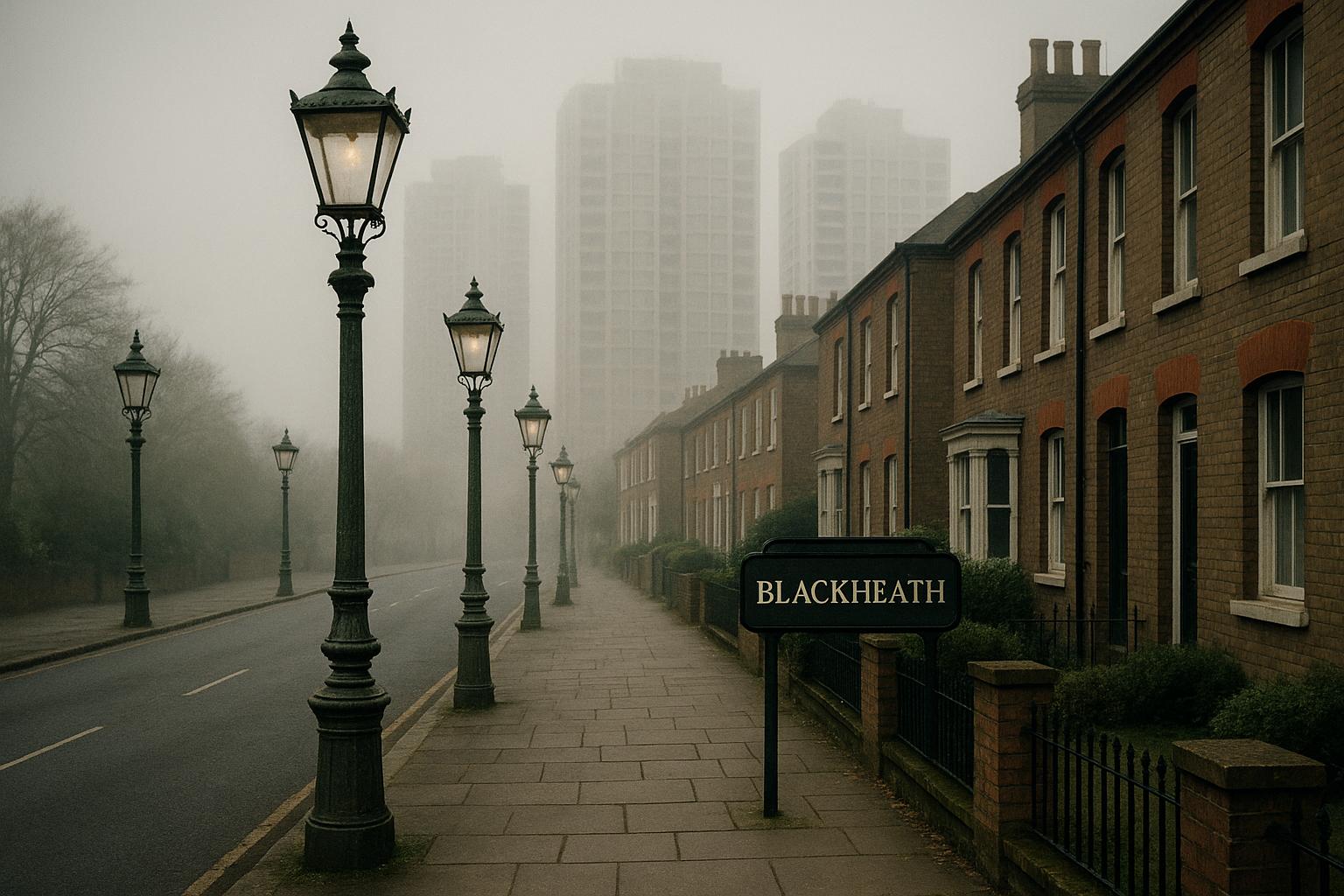Actress Sarah Hadland, renowned for her role in "Miranda" and as a recent finalist on "Strictly Come Dancing," has taken a vocal stand against a controversial housing development proposed in Blackheath, a cherished village in south-east London. Known for its strong community spirit and historical charm, Blackheath became London's first conservation area jointly with Greenwich in 1968. Hadland has joined hundreds of residents and a cadre of celebrities—including Jude Law, fashion icon Jeff Banks, and humanitarian Sir Terry Waite—in opposing plans by the north London developer Acorn to build 45 new homes on the Blackheath Station car park, the site that hosts a valued weekly farmers’ market.
The development plans include 20 terraced houses and 25 flats arranged within two towering blocks, which critics say are ill-suited both in scale and style for the area. Locals argue that these modern structures would drastically alter the village’s Victorian character, dwarf the adjacent terraces on Collins Street, and impose on nearby primary schools. Hadland condemns the scheme as "ugly" and "completely incongruous," warning that such projects reflect a broader trend where developers, motivated by profit, override community interests and planning norms. "They don't have to live here," Hadland lamented in an exclusive interview, highlighting the stark contrast between strict enforcement of planning rules on residents and the apparent leniency toward developers.
A key point of contention lies in the drastic reduction of parking spaces—from 162 down to just 17—raising fears of increased congestion, unsafe traffic conditions, and pollution in a village not designed for substantial lorry or car traffic. Hadland underscored concerns about child safety, given the high number of schools and nurseries in the area, and the broader impact on local amenities, notably the farmers' market, which is central to Blackheath's community life. She described the council’s support for the development as "mystifying" and symptomatic of authorities' readiness to bend rules to favour developers, with little tangible benefit returning to the community.
This opposition is not limited to Hadland. Jude Law, who grew up in Blackheath and attended a junior school near the proposed site, has voiced strong objections, arguing that the plans fail to meet actual housing needs and instead threaten the village's character. Musician Chris Difford of Squeeze lamented the potential loss of the village’s skyline and freedom, while Mark Knopfler described Blackheath as one of London’s last intact villages that must be preserved. Sir Terry Waite and Jeff Banks also contributed to a public letter emphasizing Blackheath's unique community fabric and urging for planning decisions to prioritize heritage over profit.
The developer Acorn, however, insists that they have engaged extensively with residents, businesses, and stakeholders—including the Blackheath Society—throughout the pre-application process. The company claims the scheme will deliver 45 "high-quality sustainable homes," including much-needed social-rented, family-sized affordable housing. They also pledge to enhance and re-provide the farmers' market and claim the project offers public benefits aligned with social, environmental, and economic sustainability.
This clash in perspectives epitomises a broader national debate on balancing housing development with heritage preservation and community wellbeing. Hadland’s rallying cry serves as a call to action for communities across the UK to assert their rights and resist developments perceived as exploitative or harmful. As she told the Daily Mail, "If people aren’t able to do this, if they don’t have the time or the resources to complain, they will be running roughshod over various parts of the country just to make money."
Such disputes are not isolated. Similar controversies have emerged elsewhere, including large-scale housing proposals in Kent, highlighting growing unease about the pace and nature of development in historically and ecologically sensitive areas. The Blackheath campaign underscores the complex tensions that local authorities, developers, and residents navigate as they seek to reconcile growth with community protection.
📌 Reference Map:
- Paragraph 1 – [1], [2], [4]
- Paragraph 2 – [1], [3], [5]
- Paragraph 3 – [1], [2], [4]
- Paragraph 4 – [1], [3], [4]
- Paragraph 5 – [1], [3], [5]
- Paragraph 6 – [1], [2], [4]
- Paragraph 7 – [1], [6]
Source: Noah Wire Services
